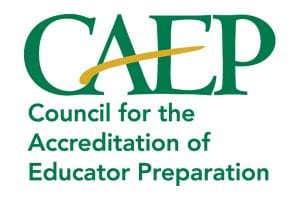Accreditation is quality assurance through external peer review. When an institution or specialized program is accredited, it has demonstrated that it meets standards set by organizations representing the academic community, professionals, and other stakeholders. To maintain accreditation the institution or program must undergo a similar review on a regular basis. Typically, reviews are conducted every 7 to 10 years.
Why It Matters
Educator accreditation is a seal of approval that assures quality in educator preparation. Accreditation makes sure that educator programs prepare new teachers to know their subjects, their students, and have the clinical training that allows them to enter the classroom ready to teach effectively.
Accreditation provides a framework that has pushed educator preparation programs to continually self-assess and conduct evidence-based analysis of their programs and their efficacy. These evidence-based shifts, rooted in continuous improvement, are helping to ensure that preparation programs are more likely to produce successful educators.
Accreditation matters to:
- P-12 Learners – outcomes-based evidence means all learners are at the center of determining effectiveness of educators
- Teacher Educators – since the process is infused with research and development, the knowledge base of effective practice will grow
- State education agencies – provides a strong partner for quality assurance, helps connect the national consensus on preparation to state-level policy and provide support for a state’s own authorization/accountability system
- Education Professionals – rigorous standards elevate the profession




